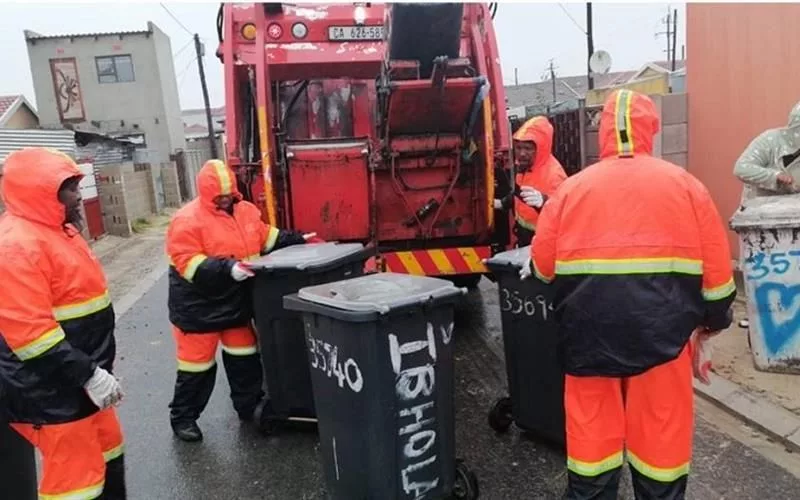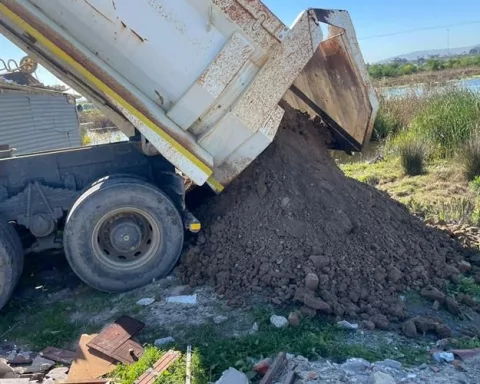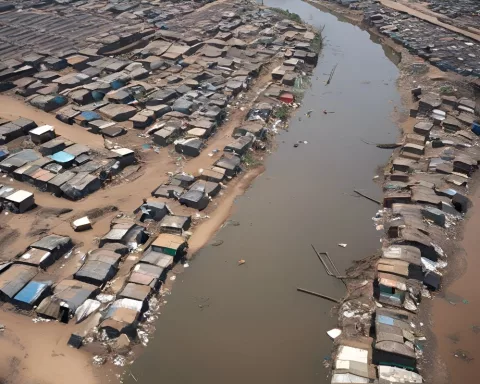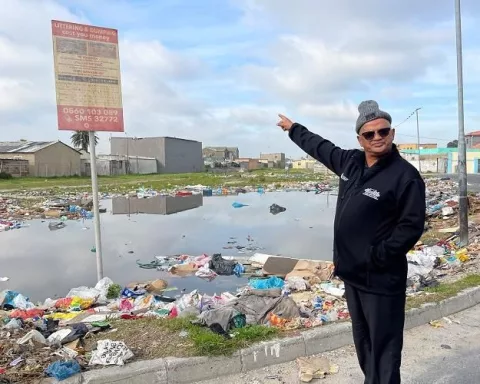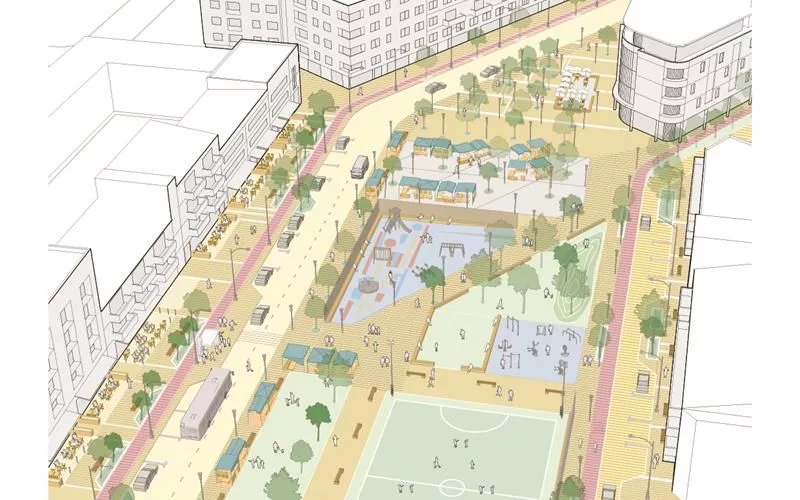Dunoon, a community in Cape Town with a high population density, is launching a six-month trial program to combat unauthorized dumping. The City of Cape Town plans to increase garbage collection from once a week to three times a week, starting on September 1, 2024. The initiative aims to promote a cleaner and healthier environment, improve community well-being, and protect the environment from pollution caused by litter. The city is urging all Dunoon inhabitants to participate in the program and refrain from unlawful dumping.
What is the six-month trial program in Dunoon?
The City of Cape Town has launched a six-month trial program in Dunoon aimed at mitigating the prevalent issue of unauthorized dumping, a direct consequence of Dunoon’s high population density. The trial program aims to increase the frequency of garbage collection from once a week to three times a week, commencing from September 1, 2024. The city is urging all Dunoon inhabitants to comply with and participate in the new collection schedule to promote a cleaner and healthier living environment.
Dunoon’s Urban Waste Management Challenge
In the dynamic hub of Cape Town, the community of Dunoon is a vibrant example of urban condensation. This South African residential area, teeming with an ever-increasing populace, is now targeted to be a model for the City of Cape Town’s Urban Waste Management Directorate. The city is launching a six-month trial program aimed at mitigating the prevalent issue of unauthorized dumping, a direct consequence of Dunoon’s high population density.
Dunoon’s urban challenges are not unique within Cape Town. Similar to several other parts of the metropolis, Dunoon has experienced a significant rise in population density, with multiple families often residing on a single property. This rapid population expansion has stretched resources, with garbage collection services being particularly impacted. Each household in Dunoon is allotted one subsidized bin collection each week, but the informal partitioning of properties has rendered a single bin insufficient to handle the waste produced by the many families living on one property.
This shortcoming, in tandem with other contributing factors like land encroachments and a widespread belief that littering generates or maintains employment, has played a significant role in the extensive unauthorized dumping in Dunoon. This situation has endangered both the health of the community and the environment. In response, the city has resolved to step up garbage collection in Dunoon, raising the frequency from once a week to three times a week, commencing the 1st of September, 2024.
Enhancing Community Well-being and Environmental Protection
The city’s initiative extends beyond addressing a tangible issue; it’s a concerted effort to improve community welfare and defend the environment. By augmenting the frequency of garbage collection, the city aims to promote a cleaner and healthier living environment in Dunoon – a concept that surpasses mere visual appeal. A tidier neighborhood cultivates a greater sense of pride and ownership among its inhabitants, fostering optimism and confidence in a better future built upon shared efforts.
This intensified service also seeks to shield the downstream environment from pollution caused by litter. The stormwater network of Dunoon is connected to the Milnerton Lagoon, which ultimately drains out to Lagoon Beach. The threat posed by the unlawfully dumped rubbish, capable of being swept into these delicate ecosystems if not intercepted by city cleaning programs, is severe.
Urging Resident’s Cooperation and Participation
The City of Cape Town’s Urban Waste Management Directorate is appealing to all Dunoon inhabitants to comply with and participate in the new collection schedule. They are urged to put their bins out for collection by 07:00 on the designated days. Even with potential interruptions to waste collection due to circumstances such as gang violence, protest action, and sewer overflows, residents are encouraged to leave their bins out until 21:00 each day. If the collection is missed, they are advised to leave the bins out for the next day’s collection and, crucially, refrain from resorting to unlawful dumping.
Monitoring the Progress of the Initiative
The focus of Dunoon now lies on the six-month duration of the pilot project, as all residents are encouraged to aid in combating illegal dumping by making use of the increased garbage collection service. The city teams will be meticulously tracking the progress of the initiative in the following months, eagerly awaiting the outcomes. In the words of Mayoral Committee Member for Urban Waste Management, Alderman Grant Twigg, “Everyone has a role in maintaining their area clean, so let’s collaborate to make a significant impact in Dunoon to the advantage of the community.”
Dunoon is at a decisive intersection, serving as the proving ground for a project with the potential to alleviate one of the city’s most urgent urban challenges. As the community welcomes the change, the city waits in eager anticipation, envisioning a future where urbanization doesn’t contribute to a landscape of waste but a cleaner, healthier, and more sustainable Dunoon.
What is the goal of the six-month trial program in Dunoon?
The goal of the six-month trial program in Dunoon is to mitigate the issue of unauthorized dumping by increasing the frequency of garbage collection from once a week to three times a week, starting on September 1, 2024. The program aims to promote a cleaner and healthier environment, improve community well-being and protect the environment from pollution caused by litter.
Why is Dunoon facing an urban waste management challenge?
Dunoon is facing an urban waste management challenge due to its high population density, with multiple families often residing on a single property. This has stretched resources, with garbage collection services being particularly impacted. Each household in Dunoon is allotted one subsidized bin collection each week, but the informal partitioning of properties has rendered a single bin insufficient to handle the waste produced by the many families living on one property. This situation has led to extensive unauthorized dumping in Dunoon.
How does the initiative aim to enhance community well-being and protect the environment?
By augmenting the frequency of garbage collection, the initiative aims to promote a cleaner and healthier living environment in Dunoon. This intensified service seeks to shield the downstream environment from pollution caused by litter, with the stormwater network of Dunoon connected to the Milnerton Lagoon, which ultimately drains out to Lagoon Beach. A cleaner environment cultivates a greater sense of pride and ownership among its inhabitants, fostering optimism and confidence in a better future built upon shared efforts.
What is the city urging Dunoon inhabitants to do?
The City of Cape Town’s Urban Waste Management Directorate is urging all Dunoon inhabitants to comply with and participate in the new collection schedule. They are encouraged to put their bins out for collection by 07:00 on the designated days, even with potential interruptions to waste collection due to circumstances such as gang violence, protest action, and sewer overflows. If the collection is missed, they are advised to leave the bins out for the next day’s collection and, crucially, refrain from resorting to unlawful dumping.
How will the progress of the initiative be monitored?
The city teams will be meticulously tracking the progress of the initiative in the following months, eagerly awaiting the outcomes. The focus of Dunoon now lies on the six-month duration of the pilot project, as all residents are encouraged to aid in combating illegal dumping by making use of the increased garbage collection service.
What is the ultimate goal for Dunoon?
The ultimate goal for Dunoon is a cleaner, healthier, and more sustainable future. The community serves as the proving ground for a project with the potential to alleviate one of the city’s most urgent urban challenges. As the community welcomes the change, the city waits in eager anticipation, envisioning a future where urbanization doesn’t contribute to a landscape of waste.

